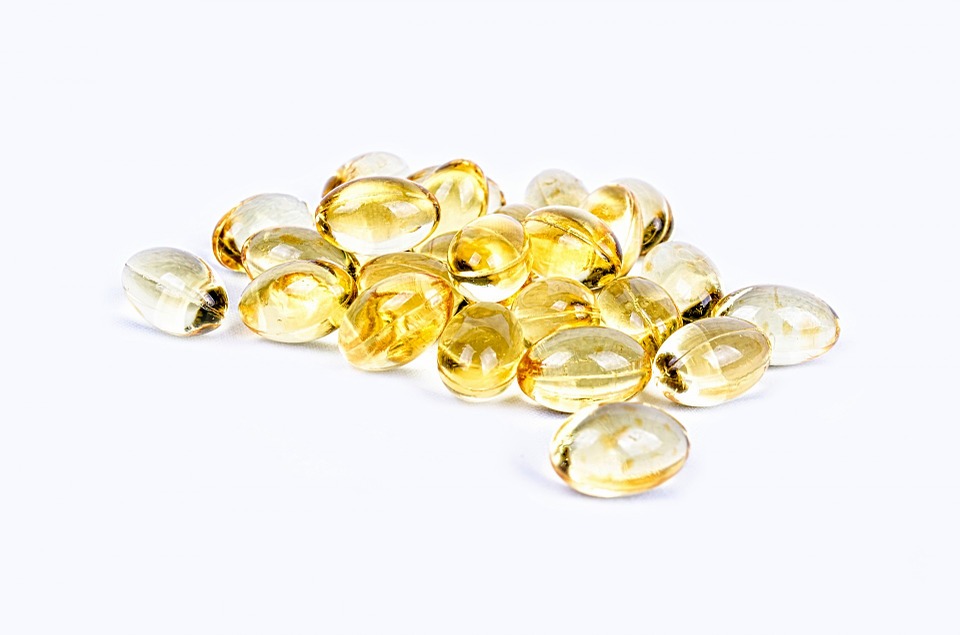The past several months have unquestionably been inundated with what sometimes feels like constant streams of new information and theories surrounding the global virus, COVID-19. Some of the most thought-provoking of which concern a potential correlation between COVID-19 and the essential nutrient, Vitamin D.
The possibility of a connection between the ongoing virus and the vitamin is undoubtedly fascinating, and likely stems from the fact that Vitamin D is known to have numerous health benefits; most notable in this case are its positive effects on the immune system function and its suppression of inflammatory processes (D, Amore, 2020). Vitamin D, which is actually a hormone produced by the kidneys, has long been theorized to have an encouraging effect on the human immune system and the ability to help fight off certain respiratory infections, including the common cold and flu (O’Connor. 2020). While results of these studies are typically inconclusive, it has rightfully so provoked questions within the scientific community which led to the completion of numerous scientific studies in order to uncover if any linkage between COVID-19 and Vitamin D can be determined, and if so, precisely what that relationship may be.
This conversation began back in March of this year, when one of the first studies was conducted by researchers at the University Hospital Marques de Valdecilla in Santander, Spain. In a quote to CTVNews.ca, author Dr. José Hernández stated, “There are numerous pieces of evidence in the literature that support the beneficial effect of vitamin D on the immune system, especially regarding protection against infections, including viral infections”. He, and several other researchers went on to examine the Vitamin D levels of 216 patients diagnosed with the coronavirus, as well as 197 additional individuals that acted as a control group, in order to analyze its effect on the severity of the virus (Hernández, 2020). The results of the study, published in The Journal of Clinical and Endocrinology & Metabolism, showed that 82% of the patients with COVID-19 were Vitamin D deficient, compared to 42% of the patients from the control group. Additionally, the results also indicated that the male patients diagnosed with COVID-19 exhibited exceptionally lower Vitamin D levels then their female counterparts, which was explained by one of the authors of the study as being due to many factors “including lifestyle or dietary habits and different comorbidities” (Hernández, 2020). While these results appear very compelling, it is important to note that the researchers behind this study made it clear they were not conclusive enough to determine any definite association between the virus and the vitamin, but rather, simply act as cause to ask more questions.
A similar study was completed at the University of Chicago Medicine throughout the months of March and April of this year, where the medical records of 4,300 individuals diagnosed with the coronavirus were reviewed, and, based on 499 of those individuals whose Vitamin D levels were tested within the past year, it was determined that ”people who were vitamin D deficient before the pandemic began were 77 percent more likely to test positive for COVID-19 compared to people who had normal levels” (O’Connor, 2020). While the lead author on this study, Dr. David Meltzer, theorizes that taking Vitamin D will cause individuals who contract the virus to exhibit fewer symptoms than those deficient in the vitamin due to “the immune system [being] less likely to have an exaggerated inflammatory response”, he ultimately echoed a similar message to that of the researchers at the University Hospital Marques de Valdecilla, which is that with the current data available the results of the study, while fascinating and undeniably noteworthy, are at best a sign of correlation and show no proof that one is caused by, or has any effect on the other (Meltzer, 2020).
One of the biggest challenges, according to Kelly Grindrod, a pharmacist, and professor at the University of Waterloo’s School of Pharmacy, is “pars[ing] out vitamin D from all the other risks and factors associated with COVID-19” (D’Amore, 2020). Numerous other pre-existing conditions have proven to affect how susceptible an individual is to contracting COVID-19, including diabetes, cancer, cardiovascular disease, and other respiratory ailments (D’Amore). Many of these are also associated with low levels of Vitamin D, making isolating out any one particular condition as the cause of the virus a very difficult task.
As a result, the nearly unanimous consensus with regards to a correlation between COVID 19 and Vitamin D appears to be twofold. First, that regardless of any potential links to COVID-19, Vitamin D has numerous proven health benefits, including helping your body absorb calcium and maintain strong bones and teeth, and people should therefore aim to get a sufficient quantity of Vitamin D on a daily basis, whether through sunlight, diet or supplement. For individuals over the age of 50, a daily supplement of 400 IU (10 µg) is recommended by Health Canada (Vitamin D). Second, that the current data available is insufficient to establish a definite relationship between the global virus and Vitamin D, and a significant amount of more research will need to be conducted, specifically in the form of randomized and properly executed control trials as opposed to simple observational studies, before any determinations are made regarding Vitamin D and its ability to prevent or lessen the severity of COVID-19.
For more information, please contact Focal Point Research Inc. We are leading North American Regulatory and New Product Consultants for Medical Devices, Natural Health Products, OTC Drugs, Cosmetics, and other consumer products regulated by Health Canada and the U.S. FDA.
References:
D’Amore, R. (2020, July 30). Vitamin D and COVID-19: Experts say any possible link is ‘premature’. Retrieved from https://globalnews.ca/news/7229458/coronavirus-vitamin-d-studies/
Dunham, J. (2020, October 27). More than 80 per cent of hospitalized COVID-19 patients had vitamin D deficiency: study. Retrieved from https://www.ctvnews.ca/health/more-than-80-per-cent-of-hospitalized-covid-19-patients-had-vitamin-d-deficiency-study-1.5162396
Gruber-Bzura B. M. (2018). Vitamin D and Influenza-Prevention or Therapy?. International journal of molecular sciences, 19(8), 2419. https://doi.org/10.3390/ijms19082419
José L Hernández, Daniel Nan, Marta Fernandez-Ayala, Mayte García-Unzueta, Miguel A Hernández-Hernández, Marcos López-Hoyos, Pedro Muñoz Cacho, José M Olmos, Manuel Gutiérrez-Cuadra, Juan J Ruiz-Cubillán, Javier Crespo, Víctor M Martínez-Taboada, Vitamin D Status in Hospitalized Patients With SARS-CoV-2 Infection, The Journal of Clinical Endocrinology & Metabolism, , dgaa733, https://doi.org/10.1210/clinem/dgaa733
Meltzer, D. O., Best, T. J., Zhang, H., Vokes, T., Arora, V., & Solway, J. (2020). Association of Vitamin D Deficiency and Treatment with COVID-19 Incidence. medRxiv : the preprint server for health sciences, 2020.05.08.20095893. https://doi.org/10.1101/2020.05.08.20095893
O’Connor, A. (2020, June 10). Exploring the Links Between Coronavirus and Vitamin D. Retrieved from https://www.nytimes.com/2020/06/10/well/live/coronavirus-vitamin-d-immunity.html
Vitamin D. (2020). Retrieved from https://www.covid19treatmentguidelines.nih.gov/adjunctive-therapy/vitamin-d/
Vitamin D. Government of Canada. Retrieved from https://www.canada.ca/en/health-canada/services/nutrients/vitamin-d.html


Recent Comments